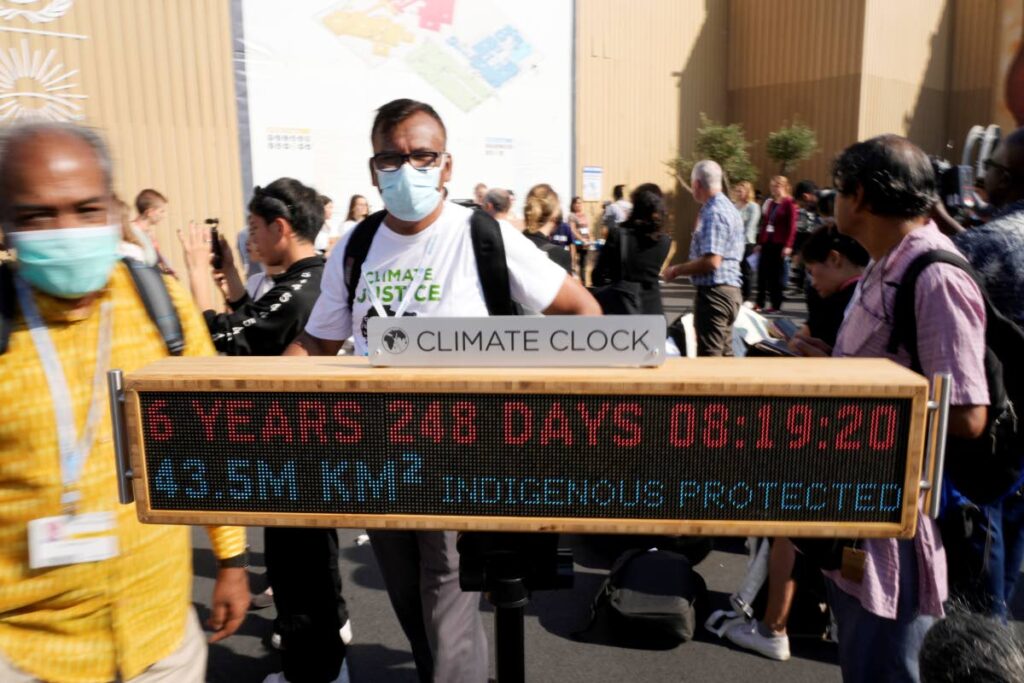Carbon tax or carbon trade?

The Minister of Planning and Development recently stated that carbon-pricing policies would be considered in Trinidad and Tobago.
This article explores the concept of emissions trading systems (ETS), another form of carbon pricing, as a tool in these initiatives.
The International Energy Agency defined ETS as market-based instruments that create incentives to reduce emissions where these are most cost-effective.
In most trading systems, the government sets an emissions cap in one or more sectors, and the entities that are covered are allowed to trade emissions permits. It is generally accepted that the two types of ETS are "cap-and-trade" and "baseline-and-credit."
According to the Organisation for Economic Co-operation and Development (OECD), in a cap-and-trade system, an upper limit on emissions is fixed, and emission permits (these may also be referred to as carbon credits, which is a generic term for any tradable certificate or permit representing the right to emit a set amount of carbon dioxide or the equivalent amount of a different greenhouse gas) are either auctioned out or distributed for free, according to specific criteria.
In a baseline-and-credit system, there is no fixed limit on emissions, but polluters that reduce their emissions below a certain level can earn "credits" that they sell to others who need them in order to comply with regulations they are subject to.
As with carbon taxation, there is no ETS policy in place in TT, and we must therefore look to other countries which have implemented such systems to evaluate their success.
The International Carbon Action Partnership (ICAP) Status Report 2022 shows there are currently 25 ETS in place globally, which cover 17 per cent of the global greenhouse gas (GHG) emissions. These systems cover almost one-third of the global population.
In the European Union (EU) the permit prices under its cap-and-trade ETS had reached more than US$100 by the end of 2021, although the 2021 average was US$62.61. This led to a revenue of US$36.7 billion being generated from market auctions.
It is the oldest ETS in force, established in 2005, and currently covers activities from the power sector, manufacturing industry, and aviation.
In California, whose cap-and-trade ETS began in 2012, the average auction price was US$22.43 for 2021, which led to US$3.99 billion in revenue-generation. It is currently the broadest carbon-pricing system in the US and covers the power, industry, transport and building sectors.
These statistics are enticing, but as with other carbon-pricing policies, "carbon leakage" is a potential unforeseen consequence of their implementation.
The European Commission defines carbon leakage as “the situation that may occur if businesses were to transfer production to other countries with laxer emission constraints.” Additionally, issues may arise with regard to price volatility, governance issues and administration problems.
Nevertheless, as seen in the EU and California, there is great potential for ETS to be implemented as a tool for the generation of revenue which can be used to support green initiatives.
While there are no current plans to introduce an ETS in TT, the issue of carbon markets was addressed at the recent Ministry of Planning and Development’s UNFCCC Pre-COP 27 consultation in Port of Spain. The event was facilitated with support from Climate Analytics Caribbean and the UN Development Programme (UNDP).
At the time of the writing of this article, COP27 is under way in Sharm-el-Sheikh, Egypt, where the Minister of Planning and Development leads the delegation from TT. While the topic of ETS may not be specifically addressed, the minister will be part of a forum focused on finding ways to increase access to financing for climate action for the Caribbean.
This article was developed for the Trinidad and Tobago Chamber of Industry and Commerce by Justin Ram, regulatory affairs officer, Trade and Business Development Unit.


Comments
"Carbon tax or carbon trade?"